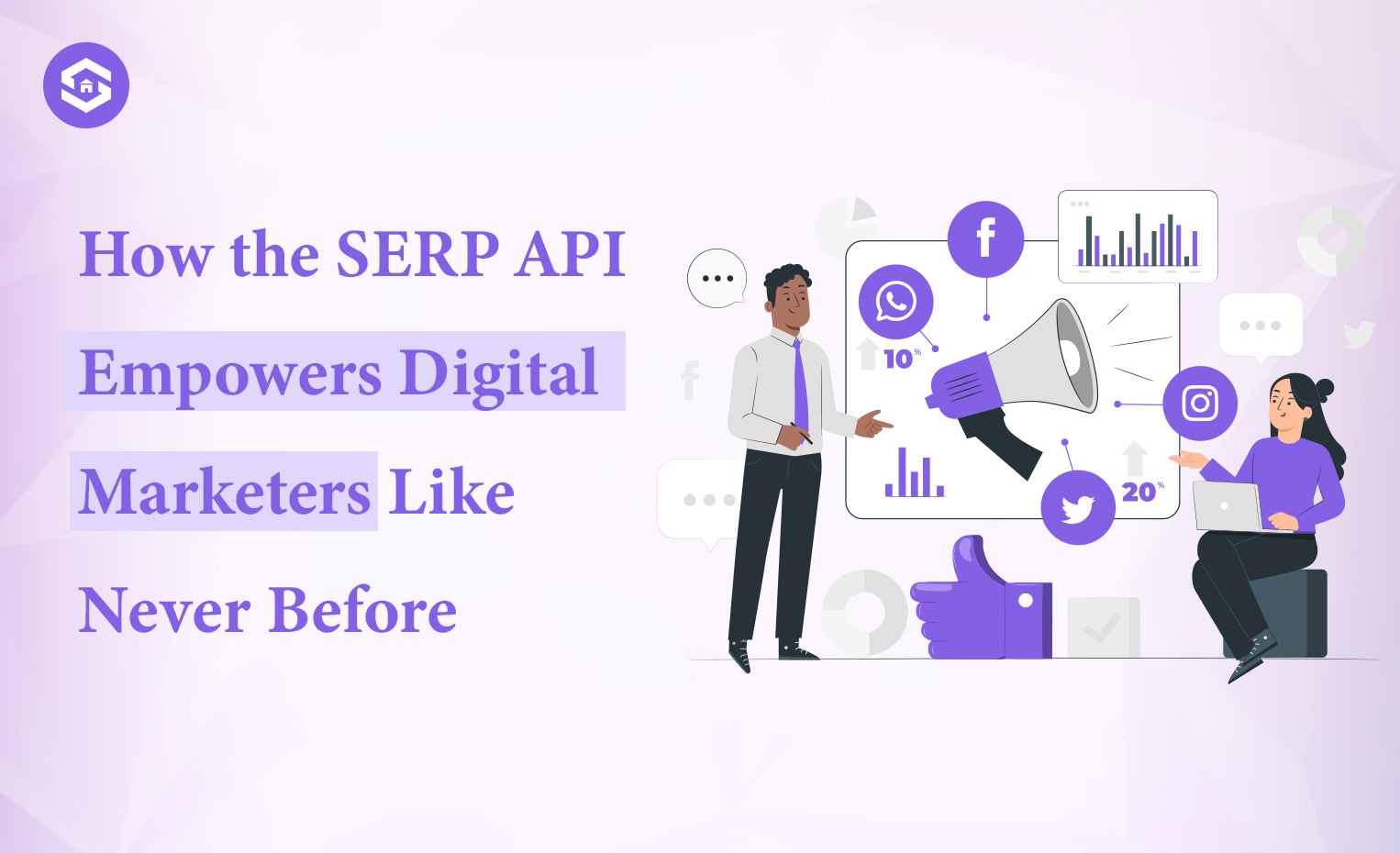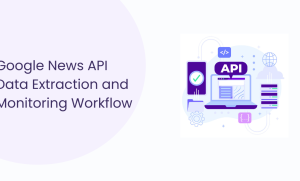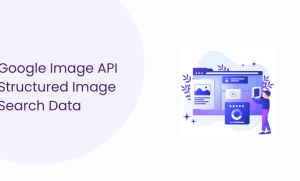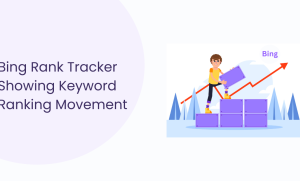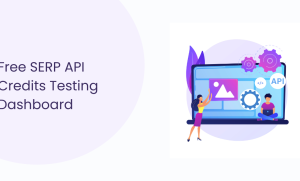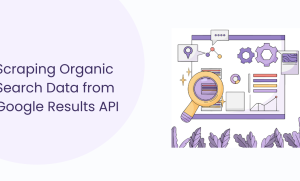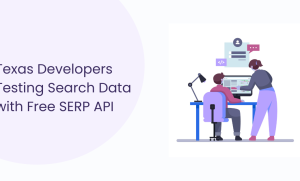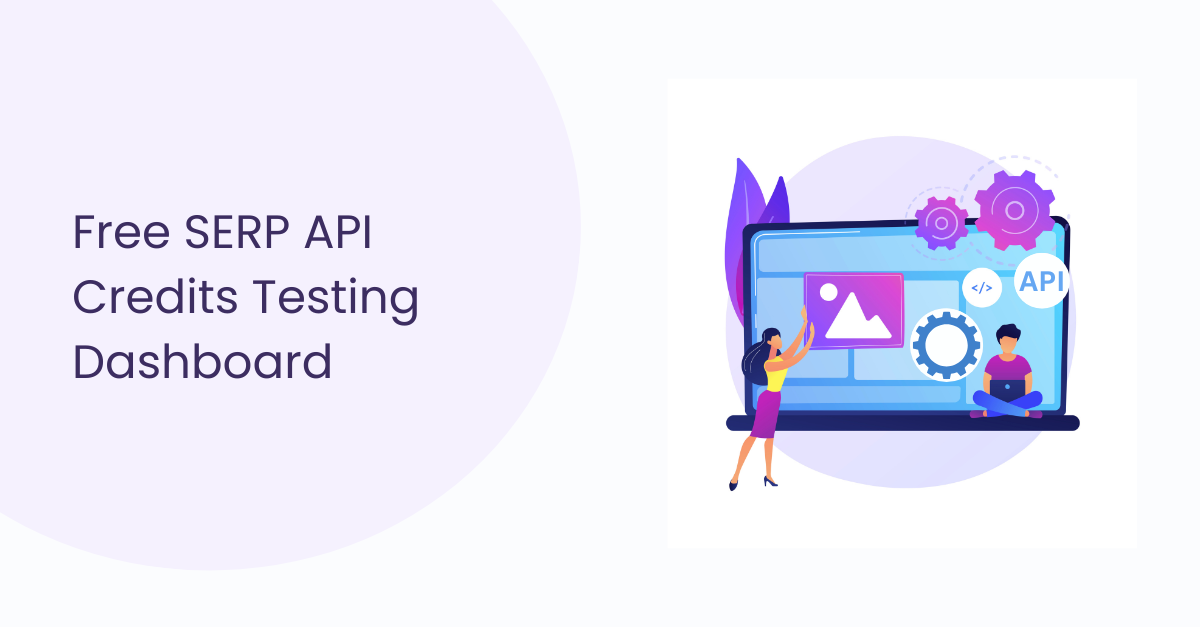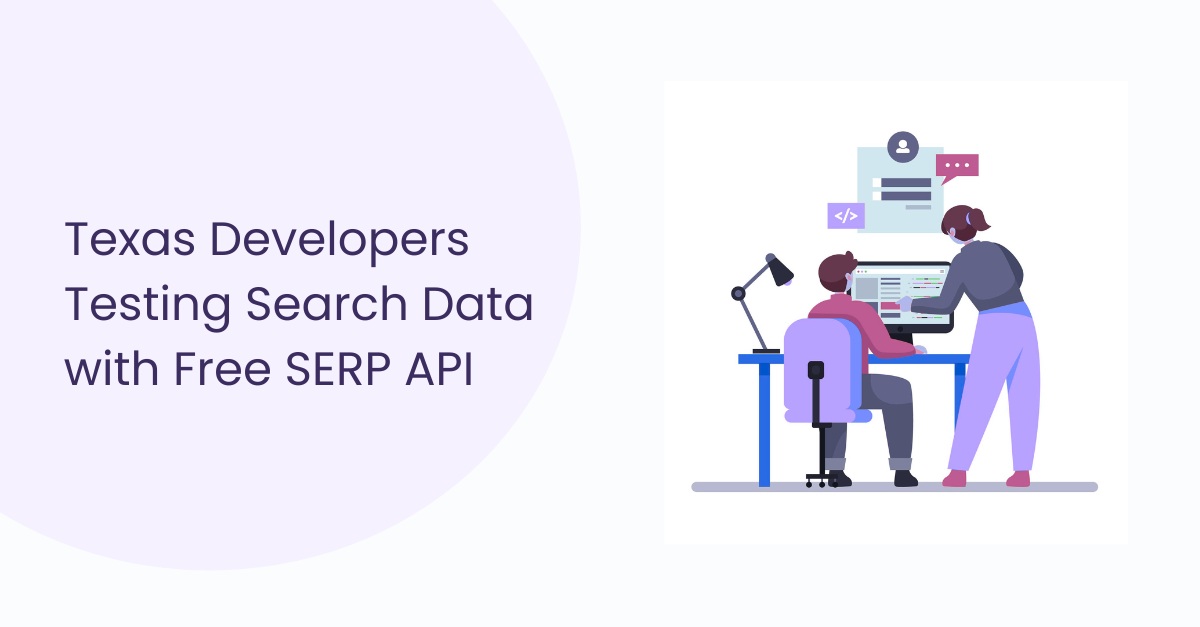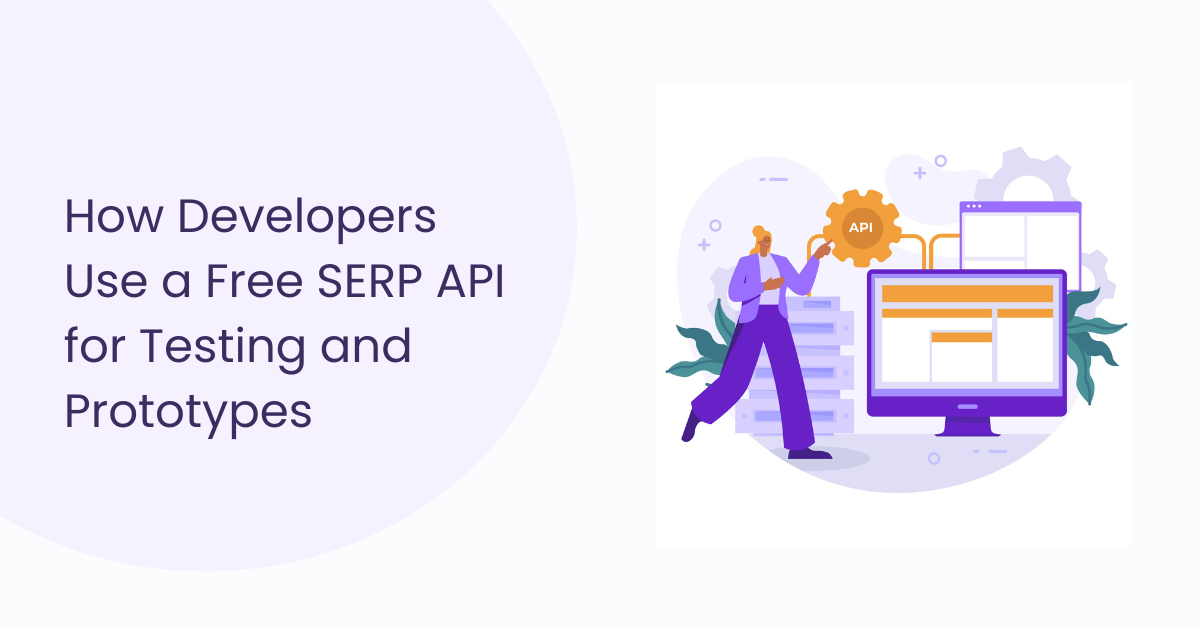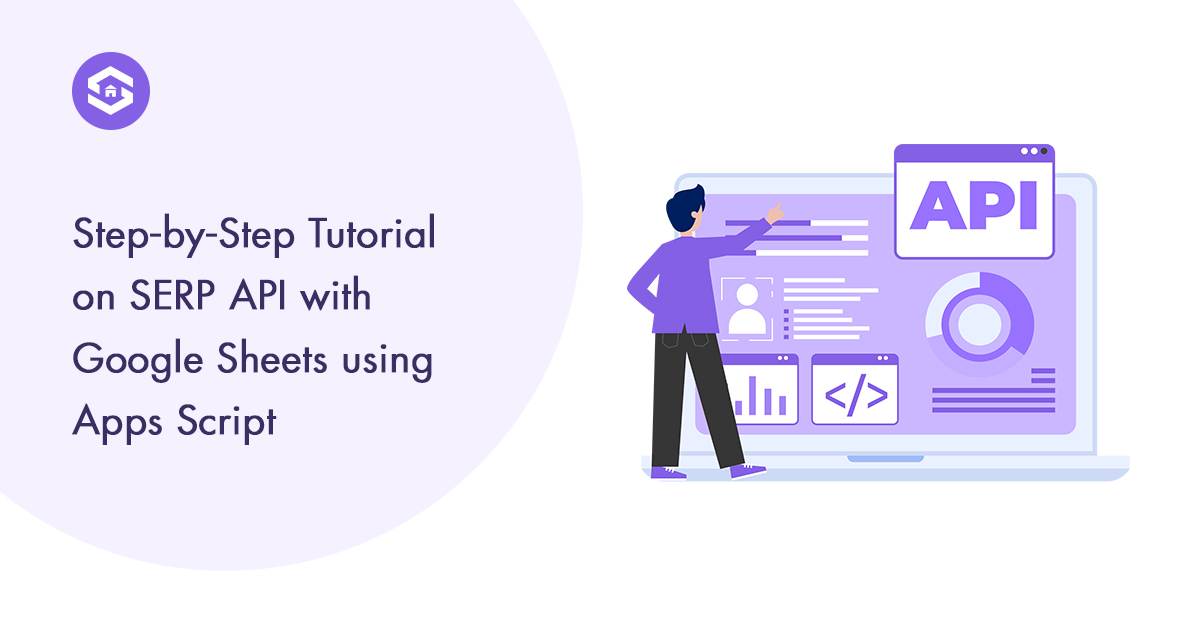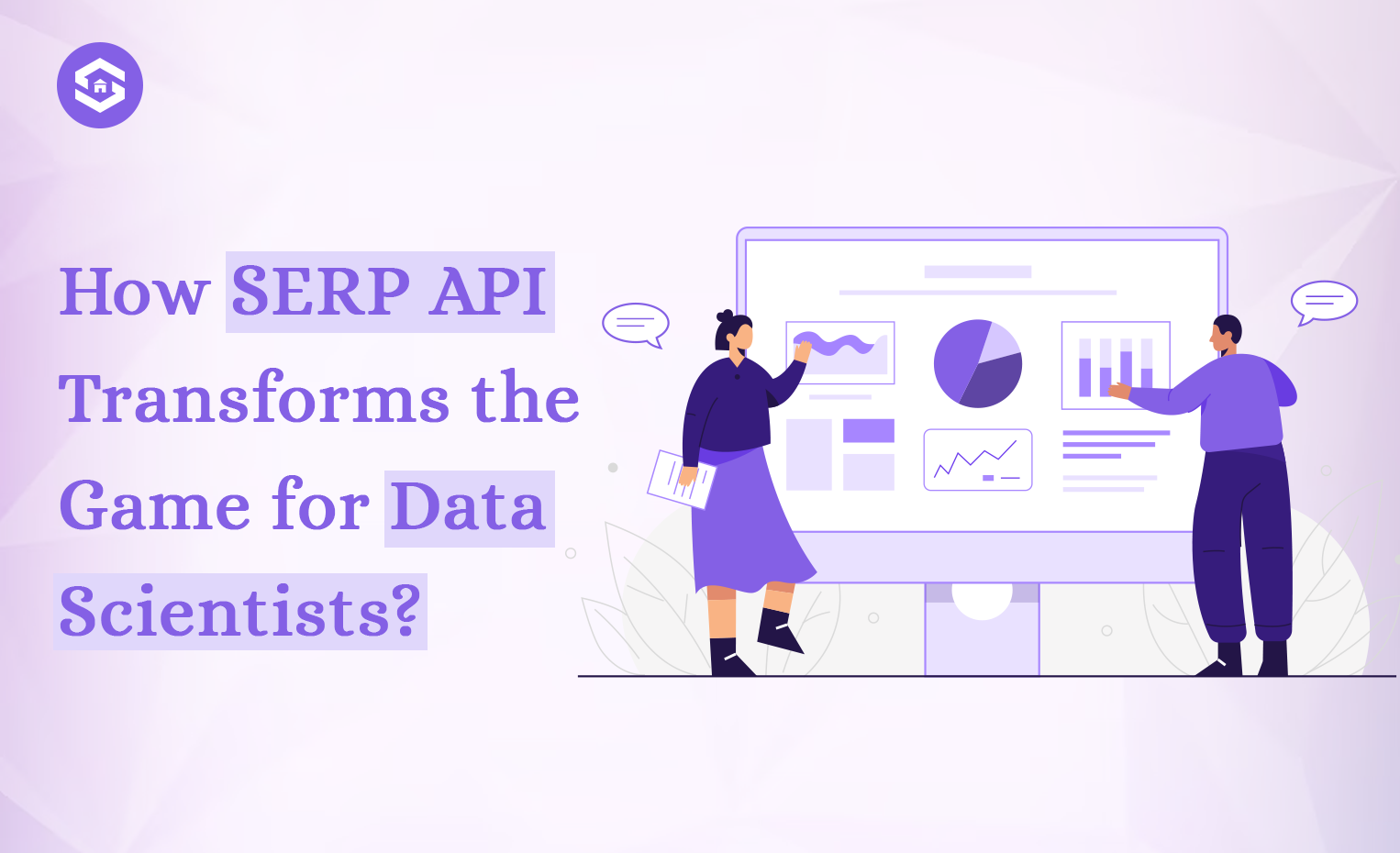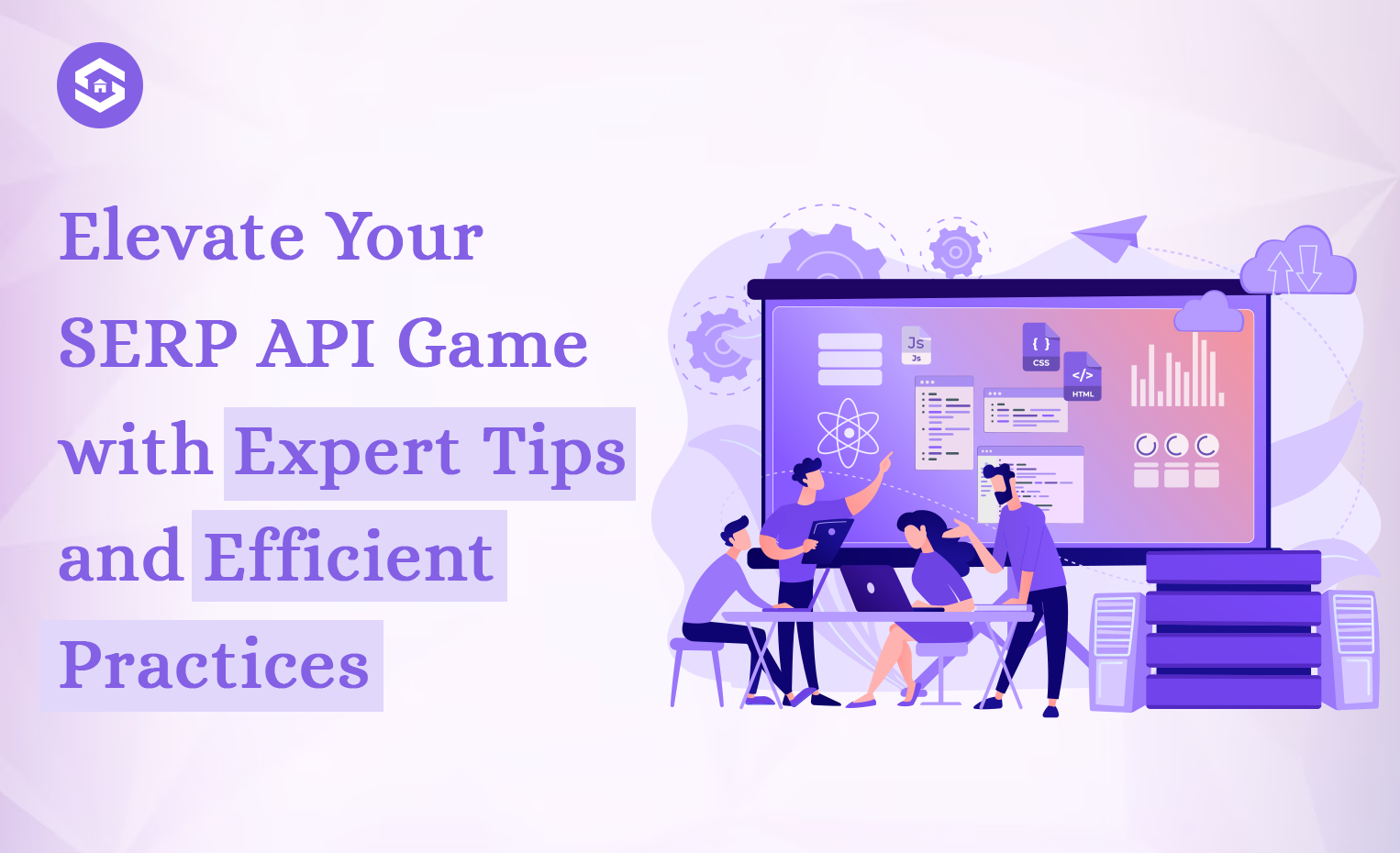Table of Contents
Table of Contents
In the fast-paced world of digital marketing, staying ahead of the competition requires access to real-time and accurate data. This is where API comes into play means the best SERP API.
Know what API is? Check this: what is an API?
SERP API stands for the Search Engine Results Pages Application Programming Interface; SERP API is the covert tool savvy digital marketers use to gain a strategic edge.
This article delves into SERP API’s ins and outs, working mechanisms, advantages, implementation strategies, getting perfect API providers, and future trends.
Want to try our SERP API and get free searches with real-time & accurate results.
How SERP API Works:
Explanation of API:
At its core, an API acts as a bridge between different software applications, allowing them to communicate and exchange data seamlessly. SERP Scraper collects and delivers SERP data from search engines like Google, Bing, and Yahoo to external applications like digital marketers.
Check Complete Blog: Google SERP API Works
Data Retrieval Process:
Sending Requests: Digital marketers send specific queries (search terms) to the API. These queries resemble what a user would input in a search engine.
Receiving Data: The API fetches the most up-to-date search results based on the questions and returns them to the requesting application in a structured format.
Different Types of APIs for Search engine:
Organic Search Results: These include the non-paid listings that appear on a search engine results page based on their relevance to the user’s query.
Paid Search Results: These advertisements appear on top of the organic results, labeled as ads.
Featured Snippets: These are concise answers to a user’s query that appear directly on the search results page.
Knowledge Graph: This presents information visually appealingly, often seen on the right side of the search page, providing quick answers to common queries.
Local Search Results: Tailor to location-specific searches; these results are crucial for businesses targeting local customers.
Advantages of Using SERP API
Accurate and Real-Time Data:
Access to real-time data is invaluable in the ever-changing digital marketing landscape. SERP Scraper provides the latest search results, ensuring marketing decisions are based on current information.
Competitor Analysis
Tracking Competitor Rankings: SERP Scraping API allows marketers to monitor their competitors’ rankings for targeted keywords, helping identify strengths and weaknesses.
Analyzing Competitor Strategies: Marketers can refine their strategies by observing the types of content and keywords that competitors are targeting.
Keyword Research
Identifying High-Volume Keywords: It assists in identifying keywords with high search volume, enabling marketers to focus their efforts where the audience is.
Discovering Long-Tail Keywords: Long-tail keywords can be goldmines for driving targeted traffic. SERP API aids in finding these hidden gems.
Monitoring SEO Performance
Tracking Website Rankings: Keeping tabs on website rankings helps adjust SEO strategies for better performance.
Measuring Organic Traffic: By assessing changes in organic traffic alongside search result positions, marketers gain insights into the effectiveness of their efforts.
Crafting Effective Content
Tailoring Content to User Intent: With knowledge of what users are searching for, content can be tailored to match their intent.
Optimizing for Featured Snippets: It can reveal which questions trigger featured snippets, aiding in content optimization for higher visibility.
Implementing SERP API in Digital Marketing Strategies:
SEO (Search Engine Optimization):
On-Page Optimization: With SERP API insights, on-page elements like meta titles, descriptions, and headers can be optimized to align with user queries.
Off-Page Optimization: Link-building efforts can be directed towards content SERP API indicates is gaining traction.
SEM (Search Engine Marketing)
Pay-Per-Click Advertising: SERP scraping data informs the selection of keywords and ad copy, optimizing ad campaigns.
Ad Copy and Landing Page Enhancement: Understanding what users are searching for helps create compelling ad copies and landing pages.
Content Creation and Strategy
Creating Data-Backed Content: By aligning content topics with popular search queries, marketers can create content that resonates with the target audience.
Addressing User Queries: SERP API insights help identify common questions, allowing content to address user needs directly.
Local SEO
Enhancing Local Search Visibility: API assists in tracking local search rankings, ensuring that local businesses are visible to their target audience.
Managing Online Reviews: Monitoring reviews on search engine results pages helps companies to maintain their online reputation.
Challenges and Considerations:
- Data Privacy and Security: While API provides valuable data, ensuring the privacy and security of user information is paramount.
- API Limitations and Costs: Different providers may have limitations on usage, and costs can add up as data needs increase.
- Interpretation of Data: Understanding the context and implications of SERP API data requires analytical skills.
- Adapting to Search Engine Algorithm Changes: Search engines frequently update their algorithms, impacting search results and the data obtained through SERP API.
Choose the Best SERP API Provider:
Selecting the right SERP API provider is crucial for data-driven decisions. The quality of data obtained from a Best SERP API significantly impacts online presence monitoring, SEO strategies, and digital marketing campaigns. Prioritize data accuracy and coverage, opting for real-time results across regions and languages.
Choose seamless integration with user-friendly APIs and comprehensive documentation. Reliable response times are vital, ensuring low latency and uptime for uninterrupted data collection. Customizable queries, aligned pricing structures, and responsive customer support are essential. Pay attention to data security and compliance.
An ideal API provider balances accuracy, integration ease, reliability, customization, cost-effectiveness, support, and security. Assess providers against these criteria to make an informed choice, leveraging high-quality API capabilities for optimized strategies and competitiveness.
Future Trends of SERP Scraping API :
- Integration with AI and Machine Learning: AI-driven insights will further enhance data interpretation and strategic decision-making.
- Voice Search Optimization: With the rise of voice search, It will be critical in optimizing content for voice queries.
- Mobile-First Indexing Impact: As search engines prioritize mobile-first indexing, SERP API will assist in adapting strategies for mobile users.
- Evolving User Behavior and Intent: It will adapt to changing user behavior, aiding in understanding shifting search patterns.
Conclusion:
SERP API has emerged as a game-changer for digital marketers, arming them with real-time, accurate data to refine their strategies and achieve remarkable results. As the digital landscape evolves, embracing the power of SERP API is not just a choice but a necessity for any marketer striving to excel in the competitive online world. So, let’s embrace this secret weapon and leverage the insights it provides to craft winning digital marketing strategies that captivate audiences, drive engagement, and ultimately lead to success.

